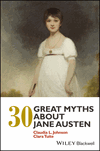PERSUASION IS AN AUTUMNAL NOVEL
Summary
Persuasion certainly offers a gateway to the novel's mood, but it has been read as celebrating a "second spring" and as "Jane Austen's Winter's Tale". The autumnal reading emphasizes a mood of quiet melancholy, when in fact all the action – or rather inaction – stirs up some rather ugly feelings. Far from being immersed in retrospective nostalgia, Persuasion looks forward to new possibilities of novelistic form by finding ways to bring the past into the present. Its supreme innovation lies in registering the experience of time and showing the workings of memory as both remembering and forgetting. Persuasion is not just about wistful, melancholy recall; it also involves the distortions of forgetting: “the general air of oblivion” and “apparent unconsciousness” of Anne's family and friends that mark their conspiracy of silence.



